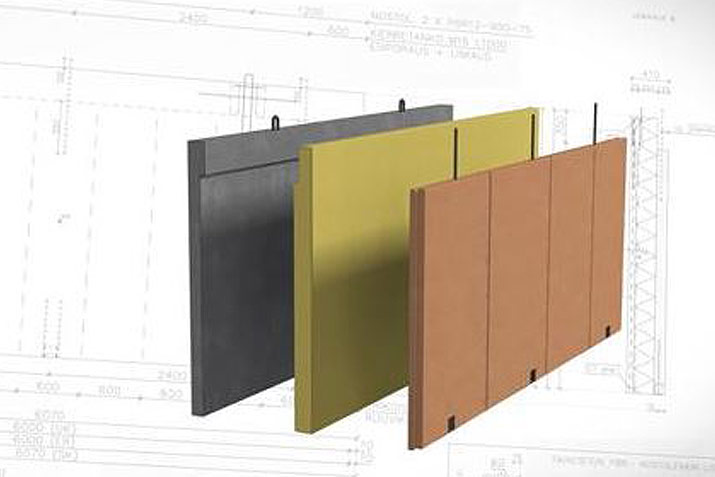

Finnish-based Metsä Wood and its partners have designed a prefabricated hybrid sandwich wall element targeting modular construction offering “a sustainable way of building”.
The innovative prefabricated hybrid wall combines concrete with Kerto LVL (laminated veneer lumber), and the first modular construction project to use the elements is Metsä Fibre’s Rauma sawmill.
Combining concrete and Kerto LVL, the hybrid prefabricated sandwich wall elements offer an alternative to typical concrete sandwich elements which is the dominant material in residential multi-storey buildings in Nordic countries.
“The hybrid sandwich wall element helps to increase the share of wood to build more sustainable buildings efficiently,” said Jussi Björman, director, business construction at Metsä Wood. “This joint development is our effort to support the construction industry,”
Metsä Wood partnered with Finnish construction and structural design companies to design the optimal prefabricated hybrid sandwich wall element.
Precast element manufacturer Lipa-Betoni saw the potential of the hybrid elements.
“The hybrid sandwich wall element is a great opportunity,” said Satu Lipsanen, CEO of Lipa-Betoni. “We look for a new market with a product, which can be used in the same way than concrete sandwich elements.”
“As Kerto LVL is a light material, the hybrid sandwich wall elements will be faster to produce at the factory and transport to the site, and even the transport emissions will decrease due to the light load. The light elements are also easier to lift,” said Mr Björman.
He also said that new easy-to-produce modular construction solutions are needed to turn the industry in a more sustainable direction.
“Around 1 million m2 of concrete wall elements are produced annually in Finland. Their load-bearing core creates 45,000 tons of CO2 emissions. If all concrete walls were replaced with prefabricated hybrid sandwich wall elements, CO2 emissions would decrease by 30,000 tons a year and 95,000 tons of carbon would be stored,” said Mr Björman.
The elements will be produced at Lipa-Betoni’s factory in Pieksämäki, Finland, and installed this month.
See: www.metsawood.com
Click Here to return to the home page for more articles.